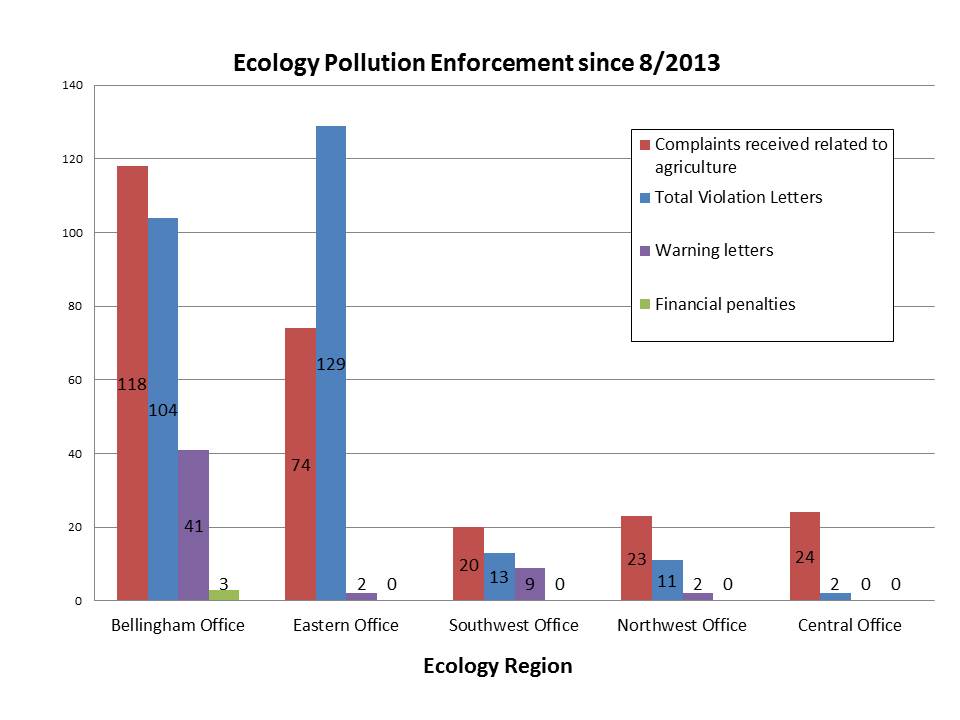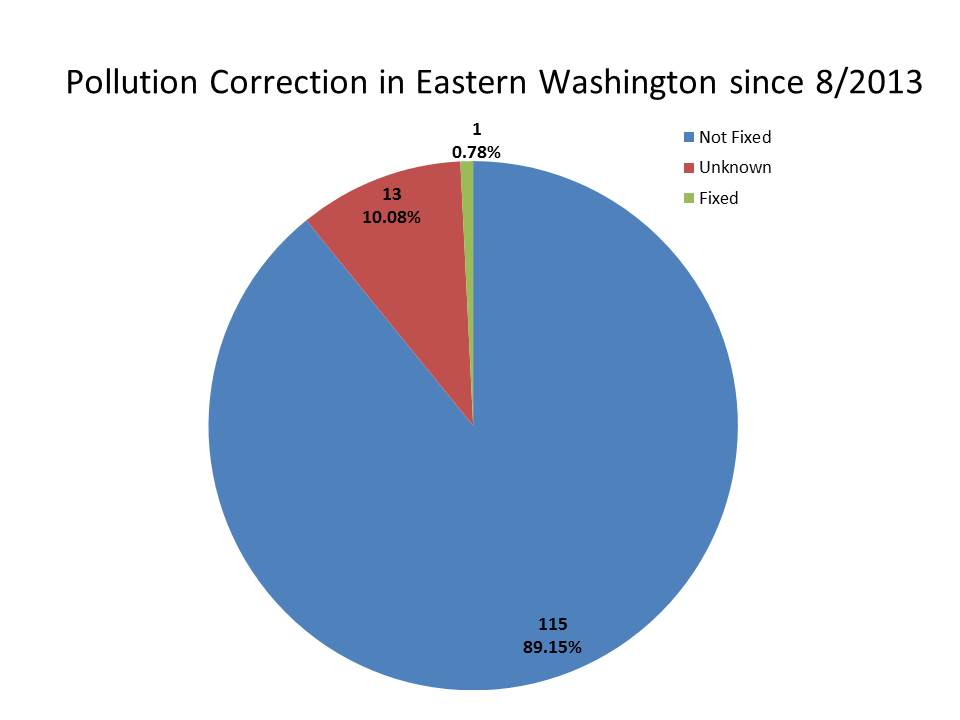Washington State has two approaches to protect the quality of the public’s water from agricultural pollution. Sadly, neither is functioning to provide the healthy, clean water that the public is entitled to. In one approach, the federal government provides funding that is made available through the counties and the State to fund voluntary programs to address agricultural water quality problems. In the second approach, the Washington Water Pollution Control Act gives the Washington Department of Ecology (WDOE) the authority to regulate farm practices that protect water quality. This authority was upheld by the Washington Supreme Court in the Lemire vs Ecology case in August of 2013. Ideally, participation by the agricultural industry in voluntary programs would work in concert with regulatory frameworks to re-enforce a culture of lawful behavior and practices that ensure public values are protected.

Within the regulatory process, Ecology identifies farm operations that are polluting the public’s water through citizens’ complaints and a Watershed Evaluation Process. They proceed with offering farm operations technical and financial assistance to correct their behavior and improve their practices via violation letters. If the behavior is not corrected, then punitive orders may be issued with associated fines. As a result of a Freedom Of Information request, we received data on the number of complaints, violation letters, warning letters, orders and fines levied by the Department of Ecology since the Lemire case was decided in August of 2013. We also received information on the types of pollution these violation letters addressed. These data show that Ecology's rarely uses their regulatory ability and agricultural pollution violations continue to go unaddressed in Washington State.
In the Eastern Region and the Spokane River Watershed, regulatory framework is in place but through inaction has become dysfunctional and counter-productive. For example, since the Lemire case in the Eastern Region, 74 complaints have been lodged with WDOE and 129 follow-up, violation letters that offer technical and financial assistance have been sent to farm operations that are violating water quality law. Astoundingly, no administrative orders have been issued nor fines levied. (To illustrate this pattern, see Figure 1 for comparison of Eastern Regional Office to Bellingham Field Office).
Further, records show that of those 129 problem cases identified by WDOE, only a single farm has corrected their behavior and cleaned up their operations. Inside the Eastern Region, the Spokane River tributary of Hangman Creek continues to have the worst water quality in the state (Figure 3). In this watershed our records show that out of 22 active pollution cases (since 2013) none have been corrected.
This inaction has created a norm in which agricultural industry breaks the law with impunity and virtually ignores water quality concerns. Ultimately, this inaction has sent a clear message that actual protection of the public’s surface water is not a priority for WDOE and emboldened polluters with the message that absolutely no enforcement is forthcoming for violators. In our watershed, as across the State, lawful behavior has broken down and as a result, the public is knowingly being deprived of clean water, healthy fisheries and functioning ecological corridors that our rivers should deliver. As our campaign for clean water in Washington State develops, we will soon have ways that you can let your voice be heard. Citizens speaking for clean water are the most powerful tool we have to let our legislators know that the public demands action.


